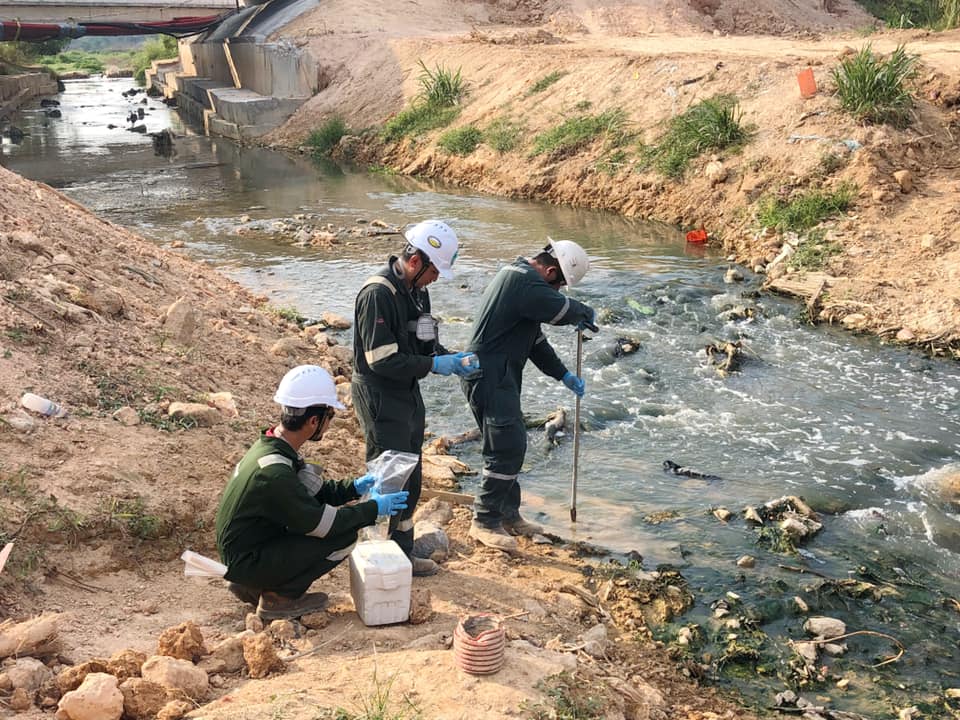KUALA LUMPUR, March 8 – Covid-19 offences, among health violations related to infectious diseases, incur heavier penalties in the Act 342 amendment Bill than for unauthorised disposal of hazardous waste.
The 2021 amendment Bill of the Prevention and Control of Infectious Diseases Act 1988 (Act 342) proposes general penalties of maximum seven years’ imprisonment, up to RM100,000 fine, or both for individuals convicted of offences under Act 342, as well as a maximum RM2 million fine for companies.
In comparison, under Section 34B of the Environmental Quality Act 1974, the disposal or deposit of scheduled wastes outside of prescribed premises on land or into Malaysian waters is punishable with a jail term of up to five years, or a maximum RM500,000 fine, or both. The environmental legislation does not differentiate between individual and corporate offenders.
Some categories of scheduled wastes, which are listed in the First Schedule of the Environmental Quality (Scheduled Wastes) Regulations 2005, include environmentally hazardous waste.
The proposed punishments for Act 342 offences related to infectious diseases are also harsher than those for non-compliance with prohibition orders for industrial plant owners to stop the release of environmentally hazardous substances, pollutants, or wastes, if there is a serious threat to environment, public health, or safety.
Section 31A of the Environmental Quality Act on the prohibition order punishes contravention with a fine not exceeding RM50,000, or imprisonment of up to two years, or both.
Last December, Health Minister Khairy Jamaluddin said the Act 342 amendment Bill was primarily targeted at repeat offenders, citing the Teratai cluster in Selangor linked to rubber glove manufacturer Top Glove Corporation Berhad that was first reported on November 7, 2020, and declared to end on April 16 this year.
However, arguably, the pollution of rivers and raw water sources due to the illegal disposal of hazardous waste causes disruption and economic losses at a far larger scale, particularly in the Klang Valley that has suffered repeated water supply cuts in the past two years, than mass Covid-19 outbreaks in factories or workplaces.
In October 2020, unscheduled water supply disruptions caused by suspected contamination in Sungai Selangor affected about five million people in the country’s main commercial region.
The illegal dumping of chemical waste into the Kim Kim River in Pasir Gudang, Johor, three years ago in 2019 sent more than 2,700 people to hospital sickened by toxic fumes, mostly schoolchildren, and forced the temporary closure of all 111 schools in the Pasir Gudang district.
Three company directors and a lorry driver were charged under Section 34B of the Environmental Quality Act. Two of the accused company directors are Singaporean nationals.
While the illegal disposal of hazardous waste is an intentional act with a direct consequence to public health and the economy, the breach of health-related rules for certain infectious disease outbreaks like Covid-19 has less clear-cut cause-and-effect.
Following Covid standard operating procedures (SOPs) to the letter, like wearing face masks and practising physical distancing in public areas, does not completely guarantee that one will not contract Covid-19; these measures simply reduce the chances of infection.
Covid-19 clusters in workplaces also do not necessarily mean that all reported infections originated from the place where they were first detected. The index case of a cluster is simply the first identified infection, not definitive proof that that person infected a certain other individual, particularly with an airborne respiratory virus like the coronavirus that is extremely contagious.
The specific offence of the breach of minimum workers’ housing standards is already regulated by the Labour Department under the Employees’ Minimum Standards of Housing, Accommodations and Amenities Act 1990.
Covid-19 outbreaks have also been reported in public hospitals. Yet, when it comes to Ministry of Health (MOH) facilities, Health director-general Dr Noor Hisham Abdullah has attributed the majority of Covid-19 cases among health care workers to infection from the community, not from their workplace.
In an anonymous letter to CodeBlue in April 2020, a health care worker from Sarawak General Hospital (SGH) linked a Covid-19 outbreak among coworkers to allegedly haphazard testing and quarantine policies in the MOH hospital. The person also alleged poor conditions in health workers’ quarantine centres, like fungus-infested rooms.
Even with Covid-19 outbreaks in vaccination centres (PPVs), such as the cluster reported in July last year at the Ideal Convention Centre (IDCC) in Shah Alam, Selangor, health authorities did not blame the infections on any breach of Covid SOPs.
Khairy reportedly said then that workers at the PPV could have been either exposed to the virus in the facility or outside, due to the high number of Covid-19 cases reported in Selangor. In another coronavirus outbreak at the Setia City Convention Centre in Shah Alam, volunteers accused management of hiding the infections and failing to issue guidelines in the event of discovery of Covid-19 cases.
It is unknown if guidelines for the Act 342 amendment Bill exempts government agencies, departments, or facilities from enforcement.








